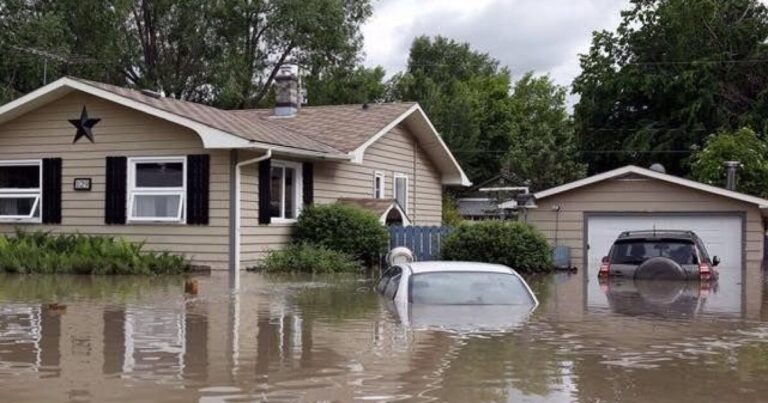Renters Property Insurance: Protect Your Belongings and Peace of Mind
Many renters mistakenly assume that their landlord’s insurance policy will cover their personal belongings in case of fire, theft, or other unexpected events. The truth is, it does not. If you are renting an apartment, condo, or house, your possessions are not protected unless you have your own renter’s property insurance policy.
This type of insurance is one of the most affordable yet essential ways for renters to safeguard their finances and peace of mind. Whether you are living in a downtown high-rise or a suburban rental home, understanding renters insurance is crucial. This guide breaks down everything you need to know, including coverage, exclusions, costs, and practical tips to make sure you get the best protection for your home and belongings.
What Is Renters Property Insurance?
Renters property insurance is specifically designed for people who live in rented residences. Unlike landlord insurance, which only covers the structure of the property and the liability of the owner, renters insurance focuses entirely on protecting your personal property and financial liability. It covers belongings such as furniture, electronics, clothing, and kitchenware, as well as legal and medical expenses if someone is injured while visiting your home. In short, renters insurance fills in the gap that your landlord’s policy leaves, ensuring that your possessions and financial well-being are protected.
Why Renters Insurance Is Essential
Many renters underestimate the value of their belongings or assume that disasters only happen to homeowners. The reality is unexpected events can affect anyone. Fires, water damage, theft, or liability claims can leave renters facing significant expenses if they are uninsured. Renters property insurance is essential because it protects your personal belongings against fire, theft, smoke, vandalism, or certain types of water damage.
It also protects you financially if someone is injured in your rental and decides to sue. Additionally, it can cover alternative living arrangements if your unit becomes uninhabitable due to a covered event. Beyond financial protection, renters insurance offers peace of mind, allowing you to rest easy knowing you will not face unexpected hardship. Many landlords even require tenants to carry renters insurance as part of lease agreements, recognizing the protection it provides both parties.
What Renters Property Insurance Covers
A renter’s insurance policy is typically structured to cover three main areas: personal property, liability protection, and additional living expenses.
Personal property coverage protects your belongings from a range of risks, including theft, fire, lightning, smoke, windstorms, vandalism, and some types of water damage. This coverage extends to items stored outside the home, such as bicycles or belongings in your car, and even protects your property while you are traveling. For renters with high-value items such as jewelry, art, collectibles, or expensive electronics, scheduled personal property coverage can provide additional protection, ensuring these items are fully insured.
Liability protection is another critical component of renters insurance. It covers legal expenses if someone is injured in your rental due to your negligence. This includes medical costs, legal defense, court fees, and settlement payouts. Liability coverage protects against common accidents like a guest slipping on a wet floor or a pet biting someone, as well as accidental damage you might cause to someone else’s property.
Loss of use or additional living expenses coverage is designed to help renters maintain a normal lifestyle if their unit becomes uninhabitable. This part of the policy pays for hotel stays, meals, and temporary rentals while your home is being repaired. It is particularly important during major events like fires or significant storm damage, allowing you to continue daily life without financial strain.
Many renters also choose optional add-ons to customize their coverage. Replacement cost coverage reimburses you for the full cost of new items rather than the depreciated value. Water backup coverage protects against sewer backups or sump pump overflows. Identity theft protection assists with recovering stolen identities and monitoring credit. These add-ons can be tailored to your specific lifestyle and needs.
What Renters Property Insurance Does Not Cover
Understanding what renters insurance does not cover is just as important as knowing what it does. Flood damage, for example, requires a separate flood insurance policy. Earthquake damage is also excluded unless specifically added. Pest infestations such as bedbugs, rodents, or termites are not covered, and roommates not listed on your policy are not protected under your insurance. Normal wear and tear or intentional damage, as well as business equipment beyond certain limits unless declared, are other common exclusions. Being aware of these limitations prevents unwelcome surprises when filing a claim.
Renters Insurance vs Homeowners Insurance
The main difference between renters and homeowners insurance lies in what is covered. Renters insurance protects personal property, liability, and additional living expenses. Homeowners insurance, on the other hand, covers the structure of the house, the land, and personal property. Renters policies are generally more affordable because the structure itself is not at risk. If you are renting your living space, your responsibility is to protect only your possessions and liability. For a detailed understanding of how coverage differs for property owners, see our homeowners insurance guide.
How Much Renter’s Property Insurance Costs
Renters insurance is one of the most budget-friendly forms of insurance. Solid protection can often be obtained for less than the cost of a cup of coffee per week. Several factors influence the cost, including location and the risks associated with it, the total value of your personal belongings, your deductible, and any added endorsements such as identity theft or high-value item coverage. Insurer guidelines and available discounts can also impact your premium. On average, renters insurance costs between $120 and $250 per year, which equates to about $10 to $20 per month. Bundling with other policies such as auto insurance can further reduce costs.
Renters Property Insurance Providers
Selecting the right insurer matters for claims handling, customer service, and digital access. Top-rated providers include State Farm, which offers a strong local agent network; Lemonade, known for AI-driven claims and fast processing; Progressive, which provides bundling options for additional savings; Allstate, which offers customizable policies and renter education tools; and Nationwide, recognized for identity theft protection and reliable claims payouts. Comparing multiple providers ensures you find a policy that matches your needs and budget.
Smart Ways to Save on Renters Insurance
While renters insurance is already affordable, there are strategies to save further. Bundling your renters policy with auto or life insurance can earn discounts. Choosing a higher deductible lowers your annual premium if you can handle small losses yourself. Installing smoke alarms, fire extinguishers, or monitored security systems can also reduce risk and premiums. Paying annually instead of monthly avoids extra fees, and avoiding filing small claims can help maintain lower rates.
Choosing the Right Policy
Finding the right renters insurance policy is about more than price. Start by taking inventory of your belongings to calculate the coverage you need. Decide whether you want actual cash value or replacement cost coverage. Make sure liability limits are high enough to cover serious injury claims, and carefully review exclusions and limitations. Online quote tools can simplify comparisons, and speaking with an agent helps if you have unique circumstances, such as renting with roommates.
Do Students and Roommates Need Renters Property Insurance?
Yes, college students living off campus and roommates in shared rentals should carry their own policies. Students benefit from protection for laptops, textbooks, and electronics, which are often targeted for theft. Roommates are generally not covered under each other’s policies unless specifically listed, making individual coverage the safer option. Some insurers offer joint renters insurance, but clarity and separate policies often prevent disputes.
The Future of Renters Property Insurance
As housing costs rise, more people are renting long-term, and the renters insurance market is expanding. Insurers are responding with modern tools and customized solutions. Usage-based insurance that adjusts premiums based on renter habits is emerging, along with AI-driven claims processing for faster settlements. Integration with smart home devices for risk monitoring is becoming more common, and custom bundles for pet owners, freelancers, or renters with high-value items are available. Landlords are also increasingly aware of renters insurance as a lease requirement.
Final Thoughts
If you rent your home, renter’s property insurance is your safety net. It is not about being fearful but being prepared. Fires happen, pipes burst, break-ins occur, and lawsuits can arise unexpectedly. Renters insurance is affordable, flexible, and essential for protecting what you own and who you are. A few dollars a month can save thousands of dollars and give you peace of mind. Protect your space, protect your belongings, and protect yourself.
Related Resources:






